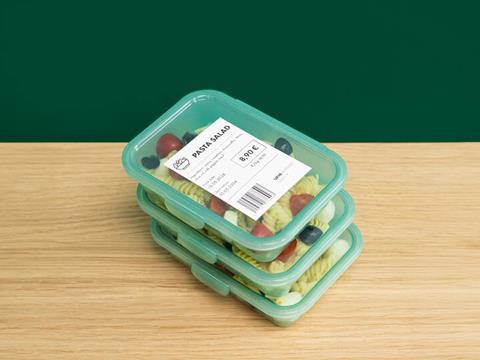
UPM Raflatac has launched OptiCut – a new wash-off label solution designed for returnable and reusable plastic food containers, including PP, HDPE and PET crates used in food logistics.
Available for purchase now, UPM hopes to meet the needs of reusable packaging producers, driven by evolving regulations and consumer demand.
The company says that its new solution, which is reportedly compatible with most direct thermal printers and weighing scales, offers “excellent” washability and easy, adhesive residue-free separation for both industrial processes and home washing machines.
While ensuring washability, UPM says that the solution offers other benefits such as adhesion with a clean cut to a variety of surfaces, minimized service spend, increased efficiency with a longer maintenance cycle, and flexibility to print and cut to any length.
In addition, all products in the portfolio are “CarbonNeutral” certified by Climate Impact Partners in accordance with The CarbonNeutral Protocol.
The company purchases carbon credits in a bid to offset what it describes as the “unavoidable greenhouse gas emissions” produced by its new product.
“As retailers, HORECA and logistics companies are increasingly shifting towards returnable and reusable containers, we are thrilled to introduce our new wash-off solution for direct thermal printing,” says Andoni Rodriguez, Director, Business Segment Logistics, Retail, Office & Linerless, UPM Raflatac.
“With the largest global distribution network for direct linerless products, we are proud to now offer our partners the OptiCut WashOff label. This solution demonstrates our commitment to innovation and to supporting our customers on their sustainability journey.”
If you liked this story, you might also enjoy:
The ultimate guide to the Packaging and Packaging Waste Regulation in 2024
How are the top brands progressing on packaging sustainability?
Sustainable Innovation Report 2024: Current trends and future priorities
Everything you need to know about global plastic sustainability regulation














No comments yet